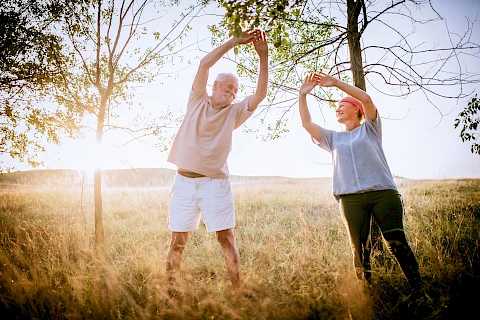
The strength and health of our bones play a crucial role in our well-being, especially as we age. For seniors, optimal bone health is synonymous with independence, mobility, and a better quality of life. However, numerous misconceptions regarding bone health persist. These myths, although often held with the best intentions, can make caregiving more complex and can even negatively affect the health of seniors.
Myth 1: Only Women Need to Worry About Bone Health
Often, the conversation about bone health is centered around women, leaving men out of the equation. However, it's crucial to understand that bone health is indeed a concern for seniors of both genders. Men can also suffer from osteoporosis, a disease characterized by a decrease in the density and quality of bone. Caregivers should take proactive steps in maintaining bone health for male seniors by ensuring a diet rich in calcium and vitamin D and facilitating regular, weight-bearing exercises.
Myth 2: Bone Density Loss Is Inevitable With Age
There's a common belief that losing bone density is an inevitable part of aging. While it's true that our bones naturally weaken as we grow older, this doesn't mean that significant bone density loss can't be delayed, minimized, or even avoided. A healthy lifestyle involving a balanced diet and regular exercise can help maintain bone density in seniors. Thus, caregivers should encourage seniors to engage in physical activities suitable for their abilities and ensure they eat a diet rich in bone-healthy nutrients.
Myth 3: Calcium Supplements Are Enough for Bone Health
Calcium is often mentioned in discussions about bone health, leading many to believe that taking calcium supplements is sufficient. However, while calcium is a key nutrient for bone health, it's not the only one. Other nutrients such as Vitamin D, which aids in calcium absorption and bone renewal, and Vitamin K, which is vital for bone mineralization, are also critical. Caregivers should oversee seniors' diets to ensure a variety of nutrients necessary for bone health are included.
Myth 4: Exercise Is Dangerous for Seniors With Weak Bones
A common myth is that exercise can be harmful for seniors with weak bones. On the contrary, regular physical activity can significantly improve bone density and overall bone health. This doesn't mean that seniors should engage in high-intensity workouts; instead, low-impact exercises like walking, swimming, and pilates can be beneficial. Caregivers can prove instrumental in helping seniors find an exercise routine that suits their age, health condition, and preference.
Myth 5: Bone Health Doesn't Affect Overall Health
Some people believe that bone health is an isolated aspect and has no connection with overall health. However, bone health significantly affects the overall health and well-being of seniors. Weak bones can lead to fractures and falls that can have serious consequences on a senior's mobility, independence, and overall quality of life.
Senior Helpers Hendersonville Can Help Seniors Maintain Their Bone Health
Proper knowledge about bone health can aid caregivers in delivering more effective care to seniors. It's important to debunk these myths to ensure the best practices are being implemented for managing seniors' bone health and improving their overall well-being. If you reside in Hendersonville, Gallatin, Clarksville, Goodlettsville, or Cookeville and need professional assistance in caring for a loved one, don't hesitate to reach out to us at Senior Helpers Hendersonville. We're committed to providing top-notch, personalized care for seniors, ensuring their comfort, safety, and happiness at all times.